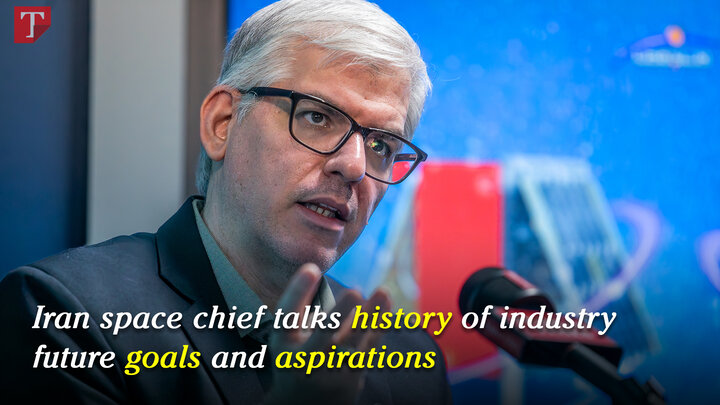-
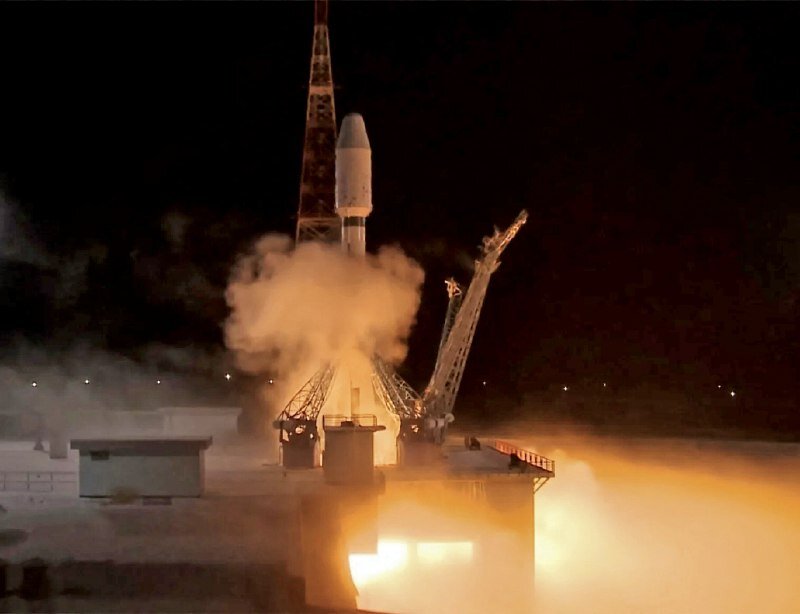 2025-12-28 21:05
2025-12-28 21:05
Milestone in Iran with triple satellite launch
Paya, Zafar-2, and upgraded Kowsar sent into space from Russia
TEHRAN – Iran’s space program took a significant leap forward on Sunday as it successfully placed three domestically built satellites into orbit in a single launch, carrying out one of the country's most complex space endeavors to date. The mission has been hailed as a major milestone by analysts and officials.
-

By Mona Hojat Ansari
Iran's path to orbit
Space chief tells Tehran Times the story of building a national program in the midst of sanctions
TEHRAN – When Iran established its new political system in 1979, its leaders placed a paramount emphasis on achieving independence. This pursuit faced numerous hurdles over the decades that followed, a period during which the country endured two wars, countless terrorist attacks, and, most critically, debilitating Western sanctions. Nevertheless, as we stand on the cusp of 2026, the independence Iranians once dreamed of has been realized in various sectors, partly because the country possessed no other option.
-
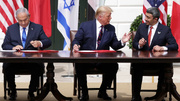
By staff writer
Is the UAE sailing Israel’s ship in the Gulf of Aden and the Red Sea?
TEHRAN – The United Arab Emirates has long sought to project itself as a modern, pragmatic power, striking a balance between economic dynamism and regional influence. Yet its deepening partnership with Israel reveals a trajectory that is less about stability and more about embedding Israeli interests into fragile states. From southern Yemen to Somaliland and Sudan, Abu Dhabi’s actions increasingly resemble those of a proxy, enabling Israel’s ambitions in one of the world’s most sensitive maritime corridors.
-

Iran does not interfere in Baghdad’s affairs, says Iraqi PM
TEHRAN – Iraqi Prime Minister Mohammed Shia' al-Sudani emphasized the constructive nature of Iraq's relationship with Iran during an interview with Al-Mayadeen, stating that Tehran’s support for political trends in Iraq does not equate to interference in Baghdad’s sovereign decisions.
-
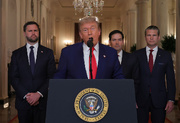
By Shahrokh Saei
Fanning the flames: How US arms sales destabilize Taiwan and violate China’s sovereignty
TEHRAN – China’s decision to impose countermeasures on U.S. military-linked companies and senior executives is neither impulsive nor symbolic. It is a calibrated response to Washington’s latest and most provocative escalation on the Taiwan question: an unprecedented $11.1 billion arms package to China’s Taiwan region.
-
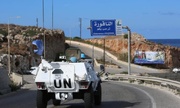
By Sondoss Al Asaad
How a technical committee has turned into a strategic threat to Lebanon
BEIRUT—What was introduced after the November 27, 2024 ceasefire as a purely technical arrangement has gradually evolved into a mechanism with political and security implications that extend far beyond its stated purpose.
Politics
-
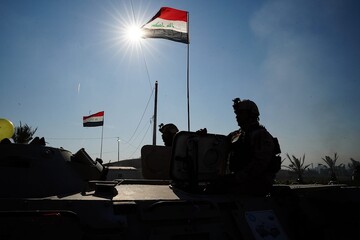
US using Iraqi airspace to spy on Iran
In an interview with Iraqi media, Mohammad Kazem al-Sadeq said Tehran has identified U.S. spy planes which used Iraqi skies to monitor Iranian soil. He also warned that the U.S. supports Israeli jet fighters in Iraqi airspace, which amounts to a “threat.”
-
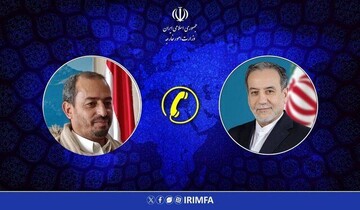
Araghchi stresses need to safeguard Yemen’s territorial integrity in calls with diplomats
TEHRAN – Iranian Foreign Minister Abbas Araghchi has stressed the need to safeguard Yemen’s territorial integrity and national unity, warning that escalating tensions in the country’s south risk deepening instability and advancing efforts to fragment the war-torn nation.
-
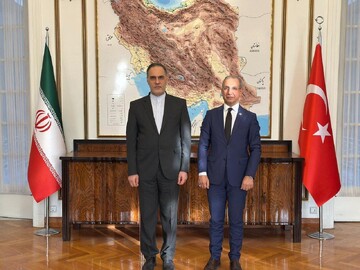
Iran, Turkey stress parliamentary cooperation to boost bilateral ties
TEHRAN – In line with efforts to strengthen bilateral and parliamentary relations, Mohammad Hassan Habibollahzadeh, Iran’s ambassador to Ankara, met and held talks with Abdulrahim Dosak, head of Turkey’s parliamentary group at the Parliamentary Union of the Organization of Islamic Cooperation (OIC).
Sports
-

Gol Gohar stun Esteghlal in 2025/26 PGPL
TEHRAN - Gol Gohar football team shocked Esteghlal with a 1-0 victory on Sunday in the 2025/26 Persian Gulf Professional League, climbing above their hosts in the standings.
-
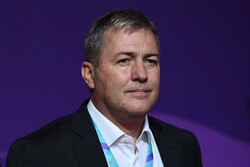
Tractor to extend Dragan Skocic’s deal
TEHRAN – Tractor football club are set to extend head coach Dragan Skocić’s contract following the team’s strong performances in the 2025/26 AFC Champions League Elite.
-

Sa Pinto confirms Rezaeian’s departure from Esteghlal
TEHRAN - Esteghlal head coach Ricardo Sa Pinto has officially confirmed that the club’s controversial player, Ramin Rezaeian, will part ways with the team during the midseason break.
Culture
-
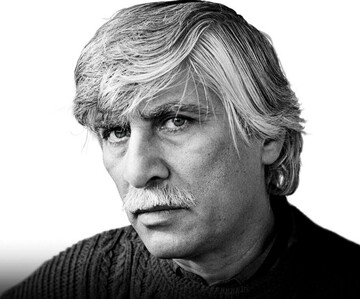
Bahram Beyzaie, pillar of Iranian artistic heritage, passes away
TEHRAN- Bahram Beyzaie, a towering figure in Iranian theater, cinema, and literature passed away on his 87th birthday on Thursday, according to a statement from Stanford University’s Iranian Studies Program, where he served as a distinguished visiting professor for over 15 years.
-

Iranian modern artworks on display in Shiraz gallery
TEHRAN – An exhibition of works by renowned Iranian artists such as Hossein Zenderoudi, Mohsen Vaziri-Moghaddam, Abbas Kiarostami, Parvaneh Etemadi, Monir Farmanfarmaian, Ardeshir Mohassess, and Lili Matin-Daftari is underway at Pirsook Gallery in Shiraz, Fars Province.
-
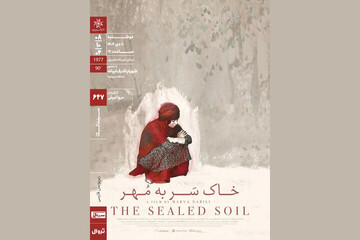
IAF to show second Iranian female-directed feature film
TEHRAN – The restored version of “The Sealed Soil,” a 1977 Iranian film directed by Marva Nabili, will be shown at the cinematheque of the Iranian Artists Forum (IAF) in Tehran on Monday.
Economy
-
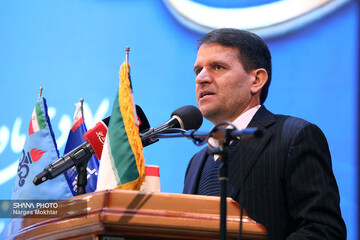
Petchem projects under 7th development plan near 60% completion
TEHRAN – Petrochemical projects under Iran’s Seventh National Development Plan are about 60 percent complete, with all first-year targets for the sector achieved in 2024, the head of the National Petrochemical Company (NPC) said.
-
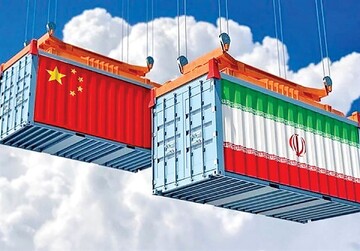
Iran's exports to China rise 3% in November
TEHRAN – Iran’s exports to China rose three percent in November 2025, even as total bilateral trade between the two countries declined in the first 11 months of the year, according to data released by China’s customs authority.
-

Loading, unloading of basic goods increase at ports
TEHRAN – Handling of basic commodities at Iran’s ports rose 12.4 percent year on year in the eighth Iranian calendar month of Aban (late October-late November), according to data released by the Ports and Maritime Organization.
Society
-
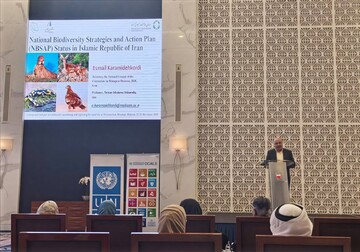
Iran attends regional workshop on Biodiversity Monitoring and National Reporting
TEHRAN – Iran has participated in a regional training workshop on biodiversity monitoring and national reporting for West Asian countries in Manama, Bahrain.
-

Tehran to host Intl. Conference on Social Work, Social Capital
TEHRAN – The 6th International Conference on Social Work and Social Capital is scheduled to be held in Tehran on January 6, 2026.
-

Three more sites added to national protected areas
TEHRAN – The Department of Environment (DOE) has added three new sites in Fars, Alborz, and Golestan provinces to the national protected areas across the country.
Tourism
-
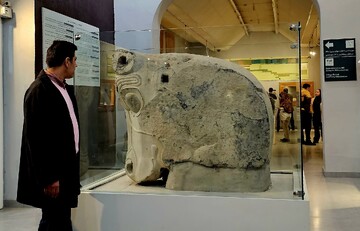
Susa: Walking through one of the world’s oldest cities
Visiting Susa was like stepping into a living history book. From the moment I arrived in this ancient city in southwest Iran, I felt I was walking through layers of time, each step revealing traces of civilizations that shaped human history.
-
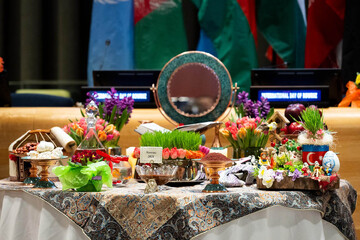
Tehran to host Nowruz summit with ministers, ambassadors from 18 countries
TEHRAN – Iran is set to host an international Nowruz summit with ministers from 18 countries in Tehran from March 27 to 29, 2026, a senior official from the Ministry of Cultural Heritage, Tourism and Handicrafts said on Sunday.
-
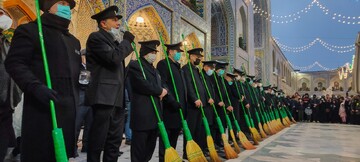
Special driver’s license tests planned for servants and pilgrims of Imam Reza Shrine
TEHRAN-- The cultural and tourism project honoring the servants and pilgrims of Astan Quds Razavi is being implemented by Touring & Automobile Club of the Islamic Republic of Iran (TACI) in Mashhad (centered on the vast Holy Shrine of Imam Reza (AS), the capital city of Khorasan Razavi province, with the aim of promoting land tourism and developing automobile assistance services.
International
-

Is the UAE sailing Israel’s ship in the Gulf of Aden and the Red Sea?
TEHRAN – The United Arab Emirates has long sought to project itself as a modern, pragmatic power, striking a balance between economic dynamism and regional influence. Yet its deepening partnership with Israel reveals a trajectory that is less about stability and more about embedding Israeli interests into fragile states. From southern Yemen to Somaliland and Sudan, Abu Dhabi’s actions increasingly resemble those of a proxy, enabling Israel’s ambitions in one of the world’s most sensitive maritime corridors.
-

Fanning the flames: How US arms sales destabilize Taiwan and violate China’s sovereignty
TEHRAN – China’s decision to impose countermeasures on U.S. military-linked companies and senior executives is neither impulsive nor symbolic. It is a calibrated response to Washington’s latest and most provocative escalation on the Taiwan question: an unprecedented $11.1 billion arms package to China’s Taiwan region.
-

How a technical committee has turned into a strategic threat to Lebanon
BEIRUT—What was introduced after the November 27, 2024 ceasefire as a purely technical arrangement has gradually evolved into a mechanism with political and security implications that extend far beyond its stated purpose.
Video Comment
-

Ayatollah Khamenei’s vision of freedom and humanity discussed in intl. conference
-

Iran hosts SCO joint anti-terror drills
-

Holy Mary Metro Station marks interfaith unity in Tehran
-

Academics analyze social dimensions of Resistance in Tehran conference
-
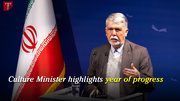
Culture minister highlights year of progress in arts, global image enhancement
Most Viewed
-
Strategic significance of Bin Zayed’s visit to Pakistan
-
‘We're now stronger than the 12-day war’
-
Israel’s recognition of Somaliland: Power play or Gaza expulsion plot?
-
UAE–Israel partnership casts a shadow on southern Yemen
-
Gradual erosion of Christian presence in post-war Syria
-
Gaza genocide and collapse of human conscience
-
Iran launches first biometric system check for Afghan refugees
-
Ayatollah Khamenei credits Iranian youth with resisting US pressure in region
-
Netanyahu’s agenda
-
Iran, Azerbaijan agree to boost truck traffic at Astara border
-
Foreign minister urges export reforms at Isfahan business forum
-
Milestone in Iran with triple satellite launch
-
Israel ‘blatantly violating’ Somalia’s sovereignty and territorial integrity: Iran
-
PMO signs $400m deals with private sector, minister says
-
As envoy changes, Iran and Georgia seek to strengthen ancient bonds





